At least one soldier was killed and three others injured when insurgents ambushed a military convoy in northeast Nigeria’s Borno state, according to security sources.
Militants believed to be from the Islamic State West Africa Province faction of Boko Haram on Friday, September 6 opened fire on the convoy in Kamuya village, a military officer and a vigilante told AFP.
“The convoy came under fire from the terrorists near Kamuya at around 11:30 am, killing one soldier and injuring three others,” said the military officer who spoke on condition of anonymity.
A military pickup truck was “burnt in the attack,” said civilian militia leader Mustapha Karimbe who confirmed the casualties. Karimbe is based in Biu.
Kamuya is around 145 km
Update September 10 ISIS in a September 7 statement claimed ISWAP fighters killed two soldiers in an attack near Buratai the previous day. Kamuya is in the Buratai area.
The home village Chief of Army Staff Lieutenant General Tukur Yusuf Buratai’s mother according to AFP, Kamuya was hit twice in December 2015, not long after he was appointed.
In January, six soldiers were killed and 14 were injured when ISWAP fighters attacked a base in Kamuya, and in March, militants killed a police officer and a local resident at military base outside Miringa, around 20 km to the south towards Biu.
Attacks in the Maiduguri-Biu-Damuturu triangle
Although ISWAP’s main area of operations is further east in the Lake Chad area, the group has attacked a number of military locations in the Maiduguri-Biu-Damuturu triangle in recent months. In late July, ISIS claimed ISWAP fighters killed 25 Nigerian troops in Benisheikh, northeast of Kamuya and earlier that month claimed ISWAP fighters fought off a Nigerian military assault in the Damboa area.
The Nigerian military seldom comments on the ongoing counter-insurgency operations, and has downplayed the insurgents’ effectiveness in the area. In one case, after ISWAP fighters in April attacked a military base in Sabon Gari, between Damboa and Biu, the Nigerian Army described reporting on the incident as “unsubstantiated” and “fake,” saying it was the work of “Boko Haram sympathizers.”
ISWAP fighters ambushed a convoy that was transporting civilians from Sabon Gari to Damboa a month later. Media reported that between five and 25 Nigerian soldiers died in that attack, but again the Nigerian Army described those reports as “fake news” and denied there had been any attacks on military personnel in Borno state.

Uptick in ISWAP ambushes
Insurgent ambushes have recently become more frequent, perhaps as roadside vegetation has grown during the rainy season, offering cover for attacks on vehicles.
On August 30, at least three Nigerian soldiers were killed in an ISWAP ambush near Monguno in the Lake Chad area. ISIS propaganda agency Amaq later released a video that it said showed the ambush.
On August 24 and 25, ISIS claimed ISWAP fighters had targeted soldiers in Niger in two IED attacks in the Lake Chad area.
ISIS claimed ISWAP fighters killed five Nigerian soldiers in an ambush in the Dikwa area on August 20.
On August 17, ISWAP fighters killed four soldiers in an ambush on a Nigerian military patrol in Mogula, close to the border with Cameroon.
A decade of Islamist insurgency
The jihadist group known as Boko Haram began its bloody insurgency in northeastern Nigeria in 2009, but it has since spread into neighboring Niger, Chad and Cameroon, prompting a regional military response.
Boko Haram split into two factions in mid-2016. One, led by long-time leader Abubakar Shekau, is notorious for suicide bombings and indiscriminate killings of civilians. Shekau pledged allegiance to ISIS leader Abu Bakr Al-Baghdadi in March 2015, but ISIS central only gives formal backing to the other faction, which it calls Islamic State West Africa Province.
The U.S. assesses that Boko Haram and ISWAP have been responsible for more than 35,000 deaths since 2011. More than two million people have been displaced, sparking a dire humanitarian crisis in the region.
Nigeria repatriates 3 orphan children of ISIS adherents in northeast Syria
With reporting from AFP


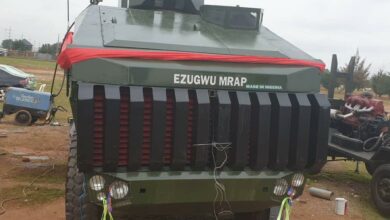
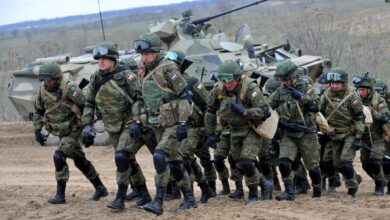

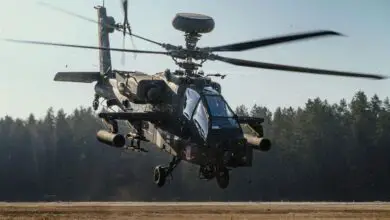
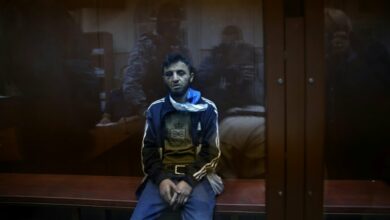
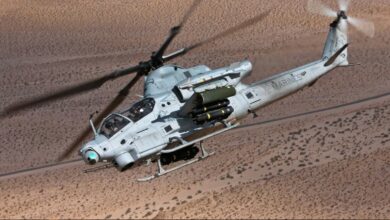

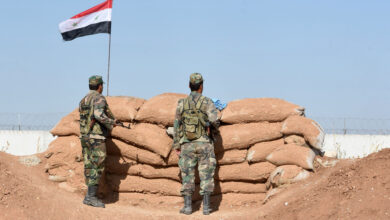
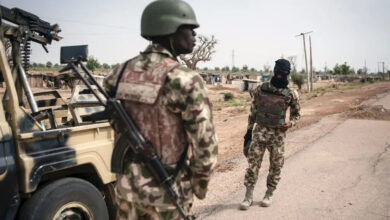
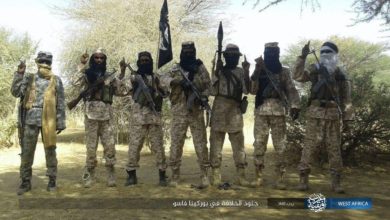
5 Comments